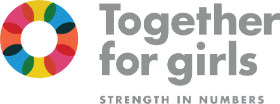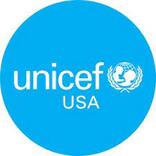The Children's Policy and Funding Initiative awards grants to address critical issues affecting children and youth globally and to advance a joint advocacy agenda for a whole child, whole life, and whole of government approach. The collective actions of grantees complement each other and create a powerful force for change. Their work is inclusive of, informed by, and cenering young people, affected populations, and other experts with lived experience around the world. The grantees partner closely with the Initiative Secretariat to facilitate and support steady, highly collaborative progress.
The Children's Policy and Funding Initiative provides organizations with multi-year grants to elevate and integrate issues affecting children and youth globally across a variety of advocacy sectors, policy forums, and influential communities. These grants are engaging new champions and bridging distinct advocacy sectors such as domestic to international, development to humanitarian, infancy to youth, and much more.
The Children's Policy and Funding Initiative provides organizations with multi-year grants to elevate and integrate issues affecting children and youth globally across a variety of advocacy sectors, policy forums, and influential communities. These grants are engaging new champions and bridging distinct advocacy sectors such as domestic to international, development to humanitarian, infancy to youth, and much more.
|
Whole Child, Whole Future: Channeling U.S. Foreign Policy and Assistance so that Young People can Change their World. Child Fund International is as a lead partner with World Vision, UNICEF USA and others to design, coordinate, and implement a shared strategy across the child and youth focused advocacy community. Specifically, the goal is to press the administration to make children and youth a top priority, including through structural reforms that elevate and employ a whole child approach in U.S. international development and diplomacy efforts. ChildFund is also leading efforts to strengthen advocacy to end online sexual exploitation and abuse against children, a form of severe violence that has grown exponentially around the world since the onset of the COVID 19 pandemic. Website: www.childfund.org
|
|
Global Disability Rights and Family Inclusion for Children with Disabilities. Disability Rights International (DRI) will partner with the United States International Council on Disabilities (USICD) to organize advocacy by and for people with disabilities and draft a new Global Disability Rights and Family Inclusion for Children with Disabilities Act. The legislation seeks to strengthen local and national civil society groups around the world to improve family- and community- based solutions and enable full social and family inclusion for children with disabilities. As a result of its family- and community- centered approach, the legislation will help reduce the number of children in orphan institutions, which too often lead to violence, abuse, trafficking, exploitation and which threaten the long-term mental health and development of millions of children. This effort will promote collaboration, information sharing, and joint advocacy across sectors and reflect the input and experience of the disability rights, children’s care, international development, and human rights communities through a broad-based coalition. Websites: DRIadvocacy.org and USICD.org
|
|
Making Global Children and Youth a Priority in U.S. Policy and Assistance. First Focus on Children’s goal is to enhance, facilitate, and strengthen efforts to increase U.S. funding and to protect and improve programs and policy supporting children and youth globally. First Focus seeks to promote a multi-sectoral, domestic and international approach to elevate whole child development within the U.S. government; and to establish a clear and full accounting of all federal government spending for children and young people globally. With this approach, First Focus aims to bridge domestic and international advocacy and policy communities and provide accurate information regarding federal budget decisions. First Focus is leveraging its leadership role among the domestic children's advocacy community to broaden understanding and support for children globally. Website: firstfocus.org
|
|
Partnering for Global Impact. Futures Without Violence is actively engaged in advocacy efforts to prioritize and address children's needs globally. Their work involves collaborating with various U.S. government agencies and offices, such as OMB, USAID, the State Department, and the Gender Policy Council within the White House, to secure increased resources and dedicated staffing for child well-being. They also advocate on Capitol Hill with Members of Congress, particularly those on authorizing and appropriations committees, to promote policies aimed at enhancing child safety, reducing violence, and improving overall child well-being. Additionally, they work to garner support from U.S.-based child advocates for global child well-being advocacy, participate in collaborative initiatives, and provide written analysis and public communications to raise awareness and build support for addressing child exposure to violence and trauma on a global scale. Their goal is to prioritize and support comprehensive policies and programs that prioritize the well-being of children worldwide. Website: https://www.futureswithoutviolence.org/
|
|
Enabling Safe Schools, Ensuring Inclusive Education, and Supporting the Global Partnership for Education. The goal of the Global Campaign for Education-US grant is to influence the U.S. government and Congress to commit, expand, and fund children, girls and adolescents’ education globally. With the expertise of several youth fellows, GCE-US is collaborating with USAID’s Center for Education and the network of education champions in Congress to enhance cross-sectoral support for whole child development within global education advocacy. GCE-US is encouraging the U.S. government to make a multi-year commitment to fund the Global Partnership for Education. GCE-US is providing expertise to congressional leaders on internationally-focused legislation to support safe schools, end violence against children, address learning loss, ensure systemic inclusive education and disability inclusion, enable girls and women's education, advance early childhood development initiatives, and deliver education in emergency settings. In their engagements with U.S. government and congressional leaders, GCE-US is delivering an overarching message about the importance of investing in the whole child throughout their lifecycle. Website: campaignforeducationusa.org
|
|
Children and Youth Initiative. InterAction’s goal is to elevate and integrate issues affecting children and youth consistently in development and humanitarian U.S. assistance by including these issues systemically in InterAction’s various working groups and membership actions; engaging youth leaders in advocacy design, decisions, and activities; and encouraging a united banner, synergistic advocacy, and joint messaging. Inter-Action is facilitating cross-sectoral advocacy coordination, information sharing, and collaboration on global children and youth issues; identifying policymaker champions who will promote a whole child agenda; obtaining real-time data on barriers and challenges children and youth face; and protecting and increasing critical funding accounts related to children and youth globally. Website: www.interaction.org
|
|
2023 Youth Engagement in Peace & Security U.S. Foreign Policy. Search For Common Ground co-chairs the Global Coalition on Youth, Peace and Security Coalition, which consists of 70 organizations from civil society, including youth-led and youth-focused groups. With this grant, SFCG is brought on youth fellows who are networking with peers around the world to facilitate youth voices and perspectives in U.S. policymaking affecting them. SFCG's overarching objective is to elevate the voices of global youth and to improve knowledge, increase support, and influence design and implementation of legislation and polices that impact conflict-affected youth and children globally. The youth fellows will work to increase support and understanding of the Youth, Peace and Security Act (YPS Act) and to integrate the YPS approach into various legislative and policy initiatives. The YPS Act removes systemic barriers for youth access and inclusion to US foreign assistance. The youth fellow also are engaging around implementation of the Women, Peace and Security Act and the Global Fragility Act to ensure inclusion of youth perspectives. Websites: www.sfcg.org and www.youth4peace.info
|
|
Implementation of the Global Child Thrive Act. The grant awarded to the Thrive Coalition enables time sensitive projects that can influence robust implementation of the Global Child Thrive Act of 2020. The Act requires the U.S. government to integrate Early Childhood Development (ECD) systematically in U.S. foreign assistance. The grant supports Thrive Coalition activities to develop materials, host informational events, and assemble recommendations to support an effective U.S. government implementation plan. The Thrive Coalition is working closely with congressional champions to ensure the Act receives the attention it deserves. Projects include training grassroots communities and pediatricians on global ECD advocacy, conducting virtual events to educate policymakers and their staff on global ECD, and building a website to raise awareness around global ECD and the Thrive Coalition’s work. Effective implementation of the Act will ensure a cross-sectoral, integrated approach to ECD and whole child development. Website: www.thrive-coalition.org
|
|
U.S. Advocacy to Support Global Programs to End Sexual Violence Against Children and Adolescents. Together for Girls is partnering with the Keep Kids Safe coalition to ensure domestic children's advocacy also support children and young people internationally. The objective is to strengthen an emerging common advocacy framework focused on “prevention, healing, and justice” for all children and young people. The Keep Kids Safe coalition formed as a united front of national leaders and adult survivors of child sexual abuse and exploitation who advocate in response to the serious crisis of increasing sexual abuse, violence, and exploitation against children at home and online which has intensified during the COVID-19 pandemic. Through Keep Kids Safe, Together for Girls is mobilizing U.S. advocates and other partners to inform U.S. policymakers about the importance of ending sexual violence as a central component for advancing a whole child approach in U.S. government activities and to galvanize global action to end sexual violence against children. Website: www.togetherforgirls.org
|
|
Whole Child, Whole Future: Channeling U.S. Foreign Policy and Assistance so that Young People can Change their World. UNICEF USA is partnering with World Vision, ChildFund and other organizations to strengthen its leadership capacity to influence the U.S. government and Congress. The goal is to establish the whole child as an overarching priority in U.S. foreign assistance and diplomacy and to ensure effective leadership and U.S. agency structures and authorities to realize that priority. UNICEF USA is helping to lay the foundation by collecting evidence and collaborating with partners to develop and advocate for legislative and policy reforms for coordinated, cross-sector, cross-governmental efforts that elevate, integrate, fund, and institutionalize issues affecting children, girls, and adolescents. UNICEF USA is bringing a special focus on mental health and psychological support services and protection from violence and online sexual exploitation and abuse against children and is urging attention to these issues in U.S. diplomacy and foreign assistance. Website: www.unicefusa.org
|
|
Whole Child, Whole Future: Channeling U.S. Foreign Policy and Assistance so that Young People can Change their World. World Vision is partnering with ChildFund International, UNICEF USA and others to facilitate and coordinate activities within the child-rights advocacy community. Their activities are designed to help the advocacy community develop a joint strategy that results in high-level U.S. leadership, better policies, and more funding for children and youth issues globally. Their objective is to have the U.S. government commit to make these issues a top priority across relevant government agencies, to create structural reforms to support this priority, and to design an approach that elevates children and youth issues and implements a whole child approach in U.S. international development and diplomacy. World Vision is focusing special attention on children with disabilities, on prevention and response to gender based violence, and on promotion of gender equality. Their work supports the child-rights community to coordinate across sectors and to call for intra-governmental action that elevates, integrates, funds, and institutionalizes issues impacting children, girls, and adolescents within U.S. diplomacy and foreign assistance. Website: www.worldvision.org
|















